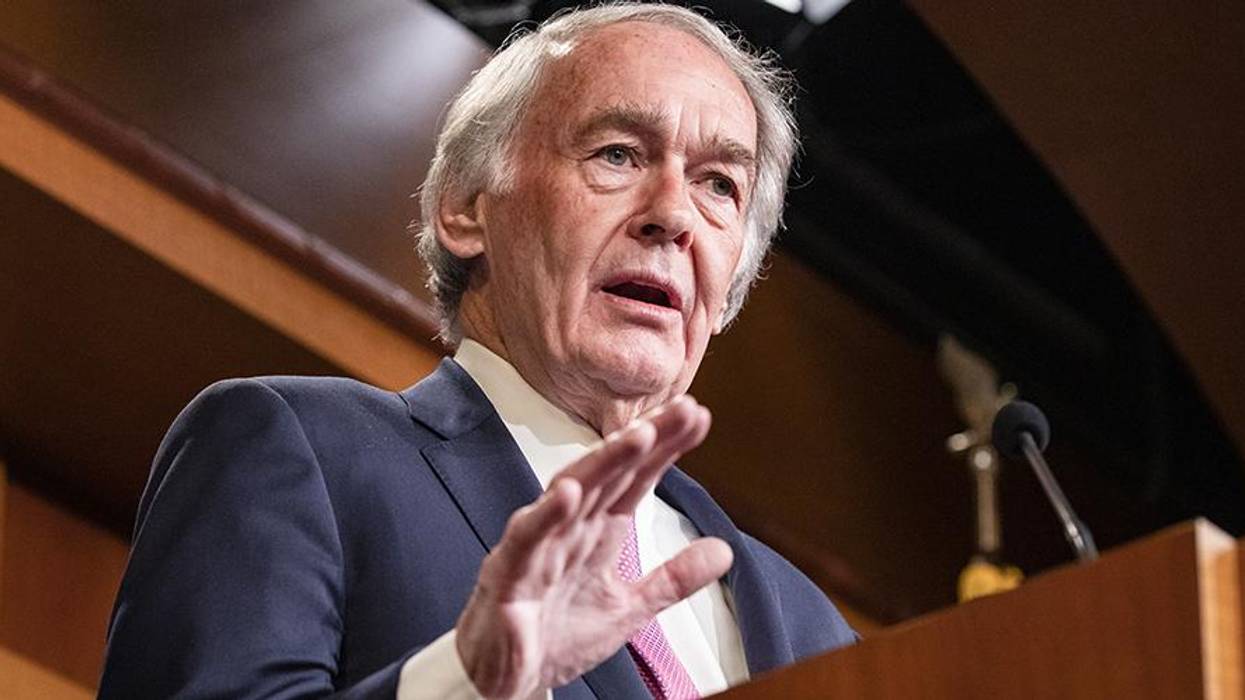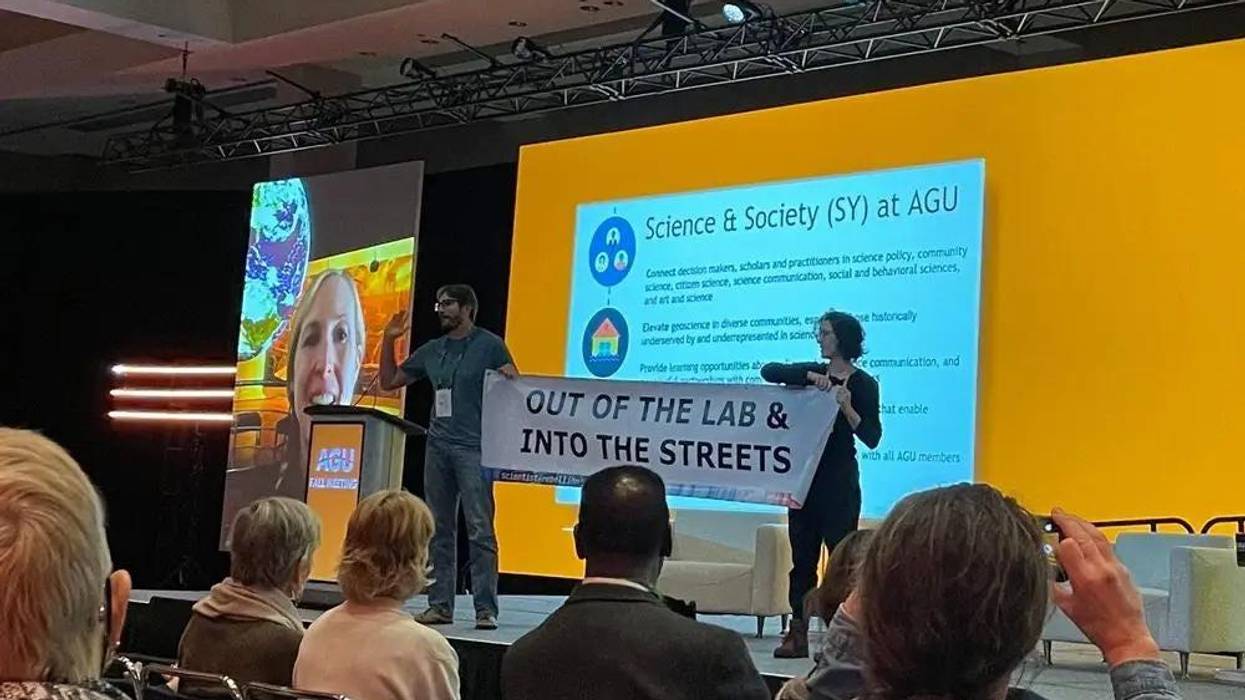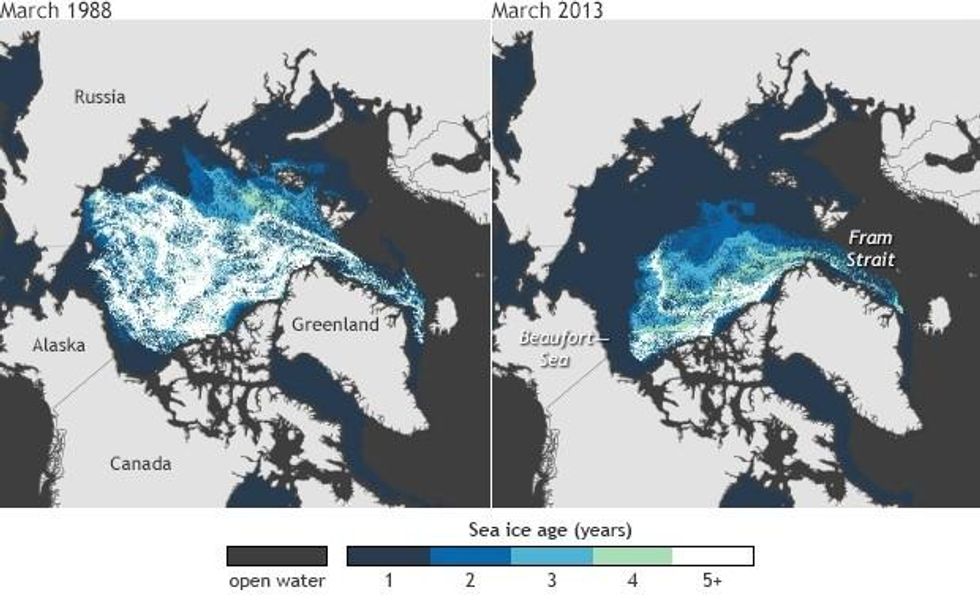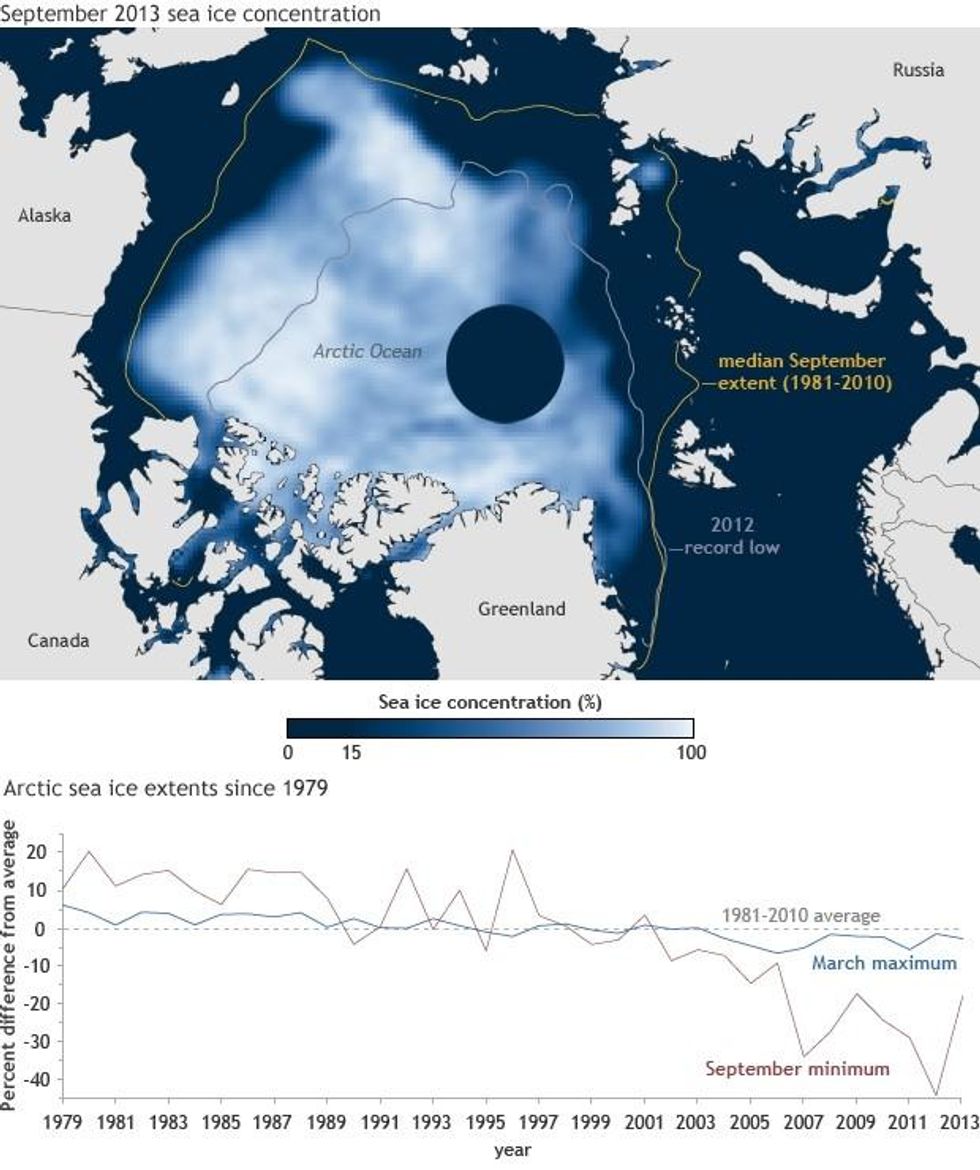Markey Demands Answers From AGU About Scientists Punished Over Climate Protest
The senator noted the organization acknowledged it received funding from oil giant Chevron as recently as 2020.
U.S. Sen. Ed Markey on Friday joined thousands of scientists from across the globe in demanding that the American Geophysical Union answer for its decision in December to expel two climate researchers from its Fall Meeting after they staged a brief, peaceful protest urging their colleagues to engage in climate activism.
In a letter to the AGU, the Massachusetts Democrat denounced the organization's "gross overreaction" and warned that it could "have a chilling effect on scientifically informed activism by climate scientists."
As Common Dreams reported last month, Rose Abramoff and Peter Kalmus walked on stage in between speakers at the meeting on December 15 in Chicago, and displayed a banner reading, "Out of the lab and into the streets."
The protest lasted roughly 30 seconds, but officials responded by ripping the banner out of the scientists' hands and, according to Kalmus, taking their badges and removing them from the meeting.
"It is as baffling as it is disappointing that AGU apparently paired its important efforts to promote global understanding of climate change with efforts to suppress actions taken in furtherance of it."
HEATED reported in late January that Kalmus and Abramoff were threatened with arrest if they returned and were told that their workplaces would be contacted. On January 3, Abramoff was fired from Oak Ridge National Laboratory in Tennessee.
"A source with knowledge of the AGU ethics process implied [an organization official] had not contacted [Oak Ridge], and that the tip off had come from a colleague at Oak Ridge," HEATED reported. "But AGU would not confirm that on the record, citing the ongoing investigation."
Markey noted in his letter on Friday that, "discordantly," the conference welcomed comments by former Costa Rican President Carlos Alvarado Quesada about the "ethical and moral responsibility" scientists have to place their research and knowledge at the "center of political action," even though it may be "very unpopular."
"Sadly, AGU's response to Drs. Abramoff and Kalmus appears to have validated former President Quesada's prescient warning," wrote Markey. "It is as baffling as it is disappointing that AGU apparently paired its important efforts to promote global
understanding of climate change with efforts to suppress actions taken in furtherance of it."
The senator, who co-sponsored Green New Deal legislation with Rep. Alexandria Ocasio-Cortez (D-N.Y.), called on the AGU to answer a number of questions about their actions, calling for clarification about whether officials threatened the scientists and contacted their workplaces as well as asking about potential conflicts of interest at the organization.
"AGU acknowledged funding from Chevron as recently as 2020, and previously voted to continue receiving money from Exxon," wrote Markey. "Does AGU currently accept sponsorship or any other form of funding from fossil fuel companies for the annual Fall Meeting or any other activities? If not, when did AGU stop taking such funding? If yes, what safeguards are in place to ensure that AGU is not influenced by such funding in how it responds to climate protest?"
More than 2,300 scientists have signed a separate letter condemning AGU's actions.




